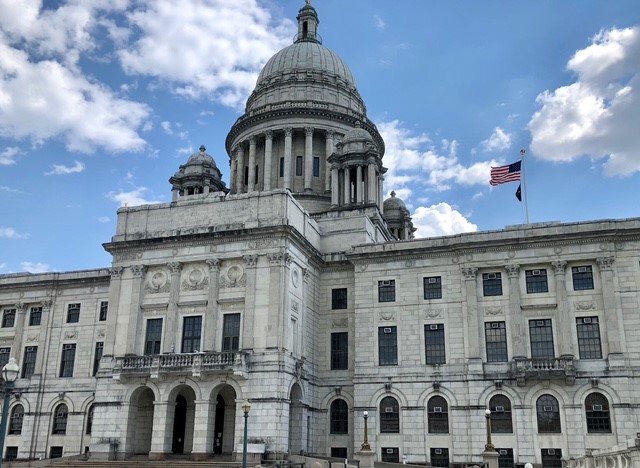
PROVIDENCE (AP) – Improving Rhode Island’s educational system is a top priority for the governor and state legislative leaders as the General Assembly’s new session begins Jan. 3.
Leaders of both parties said in interviews in the days leading up to the session’s opening that they’re concerned about educational outcomes, the state of school buildings and safety issues. There was a steep drop in math and English language proficiency among the state’s schoolchildren during the pandemic. Test scores released in November showed improvement in math, though not in English.
“Obviously education is one of our main priorities this year because of a lot of reasons — because of the effect that it has on just about everything,” said Democratic Senate President Dominick Ruggerio.
Ruggerio wants the state to continue moving toward universal pre-kindergarten, and the new Democratic Senate majority leader, Ryan Pearson, wants to update the formula that allocates how state funding goes to schools.
Democratic Gov. Daniel J. McKee said after he was elected in November that his top priority is to strengthen the education system, to raise incomes in every community, and to ensure there are enough trained workers to fill jobs that are created. He set a goal for Rhode Island students to do as well as, or better than, Massachusetts students on standardized tests by 2030. Voters in November also authorized a second $250 million bond for public school facilities. The first was approved in 2018.
McKee will be sworn in Tuesday before the legislative session. The first day of the session is mostly ceremonial. State lawmakers will take the oath of office and elect a House speaker and Senate president for the next two years. Democrats, who dominate both chambers, have already endorsed the incumbents, Ruggerio and Democratic House Speaker Joseph Shekarchi.
Shekarchi plans to carefully observe the struggling Providence school system to ensure improvements are made, and propose legislative solutions if they’re not. In 2019, the state assumed control of the city’s school system for at least five years. The move came shortly after a scathing report from researchers at Johns Hopkins University found the district was beleaguered with low test scores, crumbling infrastructure and widespread dysfunction.
The new Republican House minority leader, Michael Chippendale, said more schools need school resource officers to address safety issues. He said Republicans want to create immersive language academies to improve English proficiency, and give parents more opportunities to control where and how their child is schooled, including allowing transfers out of failing school districts.
McKee’s budget proposal and legislative priorities for the coming year will help the state work toward the goal of raising incomes for all residents, while also continuing to provide some immediate tax relief, spur housing construction and make it easier to do business in Rhode Island, according to his office. McKee and Lt. Gov. Sabina Matos, a fellow Democrat, are developing a vision for the state for the next decade. They’re calling it “RI 2030.”
Among the other priorities mentioned by legislative leaders, Ruggerio said the Senate is looking to improve the delivery of health and human services throughout the state, and aims to once again pass bills to codify the protections in the federal Affordable Care Act in state law and to guarantee a constitutional right to a quality education. Both proposals previously stalled in the House.
Shekarchi said the single most important issue is the budget and he is also interested in creating a bioscience hub. Chippendale said Republicans want to lower energy prices and help small businesses.
“There will be a lot of new legislation on a whole host of topics,” Shekarchi said. “We’re open, transparent. We welcome the public participation. I think it’s a bedrock of democracy.”












